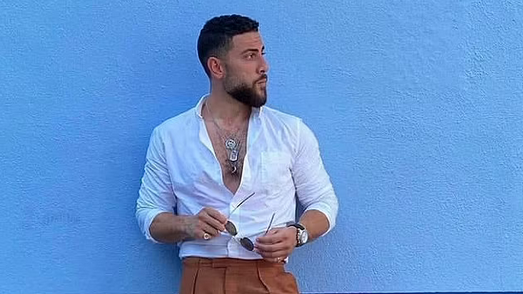Why
baby hates getting dressed after bath? When you try to dress your baby after a
bath, he or she is most likely cold. They may be temporarily warm if you wrap
them in a towel immediately after a bath, but once you remove the towel to
dress them, they are cold and uncomfortable again.
FAQs Related To Why Baby Hates Getting Dressed
After Bath
Why do babies fight getting dressed?
The
desire for children to express their autonomy frequently turns dressing into a
battleground. "When children are very young, there are very few ways for
them to establish independence or express their will, but they do have some
control over what touches their bodies," said Aaron E.
Why does my baby scream when getting changed?
If
your baby screams during nappy change time and it's not a normal occurrence,
there could be an underlying issue that needs to be addressed. It could be as
simple as your baby being cold with exposed skin, or it could be a painful
nappy rash that requires soothing balm or cream.
Read: What Foods Are Best To Cook For A 2 Year Old?
What to do if the baby hates getting dressed?
Getting
visibly frustrated, no matter how irritable Baby is, can backfire on you in the
end. Instead, getting Baby involved in the process of choosing what to wear and
then trying to distract him with a toy, a little song, or asking him questions
can sometimes help.
How do you help a child with sensory issues
get dressed?
Wear
heavy clothing: Some children with sensory processing issues find solace in the
weight of their clothing. Adding thicker layers may be preferable to several
thin layers during the winter. Weighted vests or blankets may also be
beneficial.
Why is my child so sensitive to clothing?
Read: What Is A False Negative?
A
child with clothing sensitivity has a low threshold for tactile input, which
means they register tactile input at a higher rate than neurotypical people.
They can detect every seam, wrinkle, and fuzz ball in a pair of socks. Tags
irritate them tremendously.
At what age should you stop bathing your baby?
When
the child begins to show signs of being shy, it is time for the parent to
intervene. It is essential to teach the child how to scrub and soap themselves
when the child is about 3-4 years old. Parents should also allow their children
to choose their own clothes and dress themselves.
Read: Which Cooking Method Is Best for Baby Food?
At what age do you stop using a baby bath?
Most
babies outgrow baby bathtubs by the age of six months. A convertible tub with a
suction-cup sitting assistant can be a great option for keeping up with your
baby's changing needs, allowing you to bathe your baby in the "big
kid" bathtub.
What happens if you yell at a newborn?
"Babies
have sensitive startle responses, so yelling around a baby in the moment will
likely result in a response such as tensing, widening eyes, or crying,"
explains Ariel Horvitz, a clinical psychologist at The Family Institute at
Northwestern.
At what age do babies start yelling?
If
your baby is making loud screechy noises (which most babies do between 6 12 and
8 months), know that this is completely normal. Professionals in child
development refer to this as an important cognitive stage: your baby is
learning that they have a voice and that adults will respond to it.
Read: When Do I Give My Baby Meat
Should you wipe the baby after peeing?
There's
no reason to wipe down your boy after he pees. Modern nappies are highly
absorbent, quickly absorbing the majority of it, and urine rarely irritates
their skin even when it comes into contact. However, always wipe after a number
two. with a soft towel to keep them dry and comfortable for the rest of the
day.
Why does a baby cry when getting dressed after
a bath?
Another
issue you may encounter with your child is getting dressed after a nice bath.
Babies generally dislike being pulled from the water, regardless of how warm it
is. They will bawl and be very uncomfortable due to the drastic change in
temperature.
Why do babies cry when getting dressed?
Certain
factors make transitioning especially difficult for young babies. One is that
infants have a difficult time regulating their body temperature. When they take
off their clothes, the temperature drops dramatically, and it takes them longer
to warm up again.








